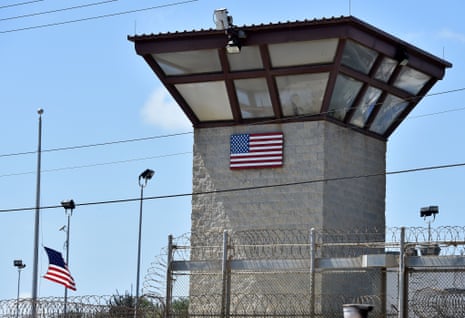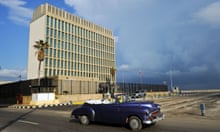Guantánamo Bay remains a “stain on the human rights record” of the US and the scene of ongoing human rights violations, said Amnesty International in advance of a rally in Washington to mark the 17th anniversary of its opening.
The US naval prison at Guantánamo in Cuba – opened on 11 January 2002 – still holds 40 Muslim men, many of whom have been tortured. Many of the detainees have been cleared for transfer for years.
Opened in the weeks following the September 11 attacks in 2001, the prison, which once housed almost 250 inmates, has long been a source of controversy.
Although Barack Obama promised to close it while in office, reducing the number of inmates from hundreds to a few dozen, it has remained in operation since Donald Trump, his successor as US president, signed an executive order to keep it open.
Daphne Eviatar, director of security with human rights for Amnesty International US, said: “Guantánamo continues to operate as a symbol of Islamophobia that embodies the fear-mongering and xenophobia that defines Trump’s presidency.
“Those who are cleared must be transferred immediately, and all other prisoners should either be charged and fairly tried or released, to allow this shameful institution to close permanently.”
Obama had argued that maintenance of an detention facility beyond the reach of US law undermined the country’s global leadership on human rights, but Trump overturned that policy in January 2018, saying that he expected new captives would be sent to the prison.
Among these is Toffiq al-Bihani, who was tortured by the CIA before he was sent to Guantánamo in 2003. He has been cleared for transfer since 2010.
“Seventeen years of detention without charge for many of the men who remain there and a dubious military commissions process at best have resulted in the detention camps at Guantánamo becoming the very symbol of arbitrary detention in the world,” said Dr Asim Qureshi, research director at the UK rights organisation Cage, which counts several former Guantánamo detainees among its campaigners.
“As long individuals continue to be detained there, any calls for human rights by the US will ring hollow.”
As part of its efforts to clear the camp, the Obama administration transferred 200 inmates to other countries. However, 40 remain in the prison complex on a small US-run military zone on the southern coast of Cuba, following resistance from the Pentagon and the reluctance of foreign governments to accept the remaining detainees.








